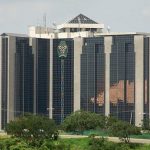NDIC Struggling to Recover Over N400bn from Debtors of Failed Banks
…NDIC set to increase deposit insurance coverage payment
By Patience Ikpeme
The Nigeria Deposit Insurance Corporation (NDIC) estimates that the debt it aims to recover, considering all the banks in liquidation including microfinance and primary mortgage institutions, exceeds N400 billion.
Managing Director of the NDIC Mr. Bello Hassan made this disclosure in Abuja on Wednesday at the opening ceremony of the 20th edition of the workshop for Business Editors and members of the Finance Correspondents Association of Nigeria (FICAN) in Owerri, Imo State.
Bello Hassan noted that many borrowers are unwilling to repay these loans, posing a great challenge for the NDIC.
He emphasized that these loans were granted using funds collected from bank depositors. Consequently, it is only through debt recovery that the NDIC will be able to compensate depositors of failed banks.
To address the ongoing debt recovery predicament, the NDIC boss stated that the recently revised 2023 NDIC Act has equipped the corporation with additional powers.
These newfound powers are anticipated to facilitate the recovery process, enabling the NDIC to pay depositors at a quicker pace. Leveraging these new provisions, the NDIC he said aims to enhance its debt recovery efforts, ultimately contributing to the swift compensation of depositors.
Despite the challenges faced, the NDIC Bello Hassan said has made substantial recoveries and payments to depositors. Advertisements have been issued calling depositors of failed banks to verify their details in order to receive liquidation dividends.
Liquidation dividends refers to payments made over and above the insured amount. “The NDIC has already paid over 1.6 billion to more than 40,000 depositors, primarily those without a Bank Verification Number (BVN) attached to their files.
Bello Hassan urged depositors to visit their offices in Abuja, Lagos, and across the six geopolitical zones for verification to expedite payment processes.
The NDIC Managing Director also disclosed that the Corporation is set to significantly increase the maximum deposit insurance coverage payment to depositors of liquidated Deposit Money Banks (DMBs), Primary Mortgage Institutions (PMIs), and Microfinance Banks (MFBs).
Hassan explained that the upward review of the insurance coverage is necessitated by the current macroeconomic developments. He stated that the new coverage level, once approved, will go a long way in reinforcing depositors’ confidence in the NDIC’s deposit guarantee scheme.
Currently, under the NDIC Act, the corporation guarantees payment of deposits up to a maximum insured sum of N500,000 to a depositor in DMBs and PMIs and N200,000 to a depositor in MFBs in the event of failure of a participating financial institution.
Hassan also disclosed that the NDIC is in the advanced stages of establishing a special desk at the Economic and Financial Crimes Commission (EFCC) to facilitate the investigation and prosecution of parties responsible for bank failures. This initiative is aimed at deterring future bank failures and protecting the interests of depositors.
The NDIC’s commitment to enhancing depositor protection and ensuring financial stability aligns with the government’s broader economic reform agenda. The corporation’s proactive measures will further strengthen public confidence in the Nigerian banking system and promote financial inclusion.
Following the completion of payment to depositors, the NDIC has commenced the valuation and assessment of assets held by banks in liquidation.
This step aims to facilitate the disposal of these assets, subsequently funding the payment of liquidation dividends.
Bello Hassan argued that considering that this payment surpasses the insured amount, “it will help reimburse depositors beyond their initial deposits”.
He then called on depositors of failed banks to present themselves at NDIC offices for verification to access these additional funds.
Regarding the Central Bank of Nigeria (CBN’s) decision to recapitalize banks to meet government’s $1 trillion economy, Mr. Bello Hassan stated that “when discussing recapitalization, it’s evident that the banking industry is currently robust, displaying strength across vital financial benchmarks such as capital adequacy, liquidity, earnings, and asset quality.
“However, considering the government’s ambitions to grow our GDP to one trillion dollars, larger banks will be crucial in operating within this expanded economic landscape”.
He added that the CBN’s focus on capitalizing these banks is significant and we eagerly await further details from the CBN regarding this process.”
Speaking to developments after the launch of the 2021-2025 Strategic Plan of the NDIC, Bello Hassan disclosed that the plan was carefully crafted, considering current trends and realities, aiming to distinguish the Corporation by delivering exceptional, efficient services to all our stakeholders.
So far, implementing the plan has resulted in the establishment of the Single Customer View (SCV) framework, expediting insured sums’ swift disbursement to depositors of closed banks.
He added that the NDIC’s increased collaboration with legal professionals especially the bar and the bench has hastened the dispensation of justice and improved judgments in cases involving failed banks.
Furthermore, he said the NDIC’s “structured policy on Alternative Dispute Resolution has resolved previously protracted litigations related to failed banks through out-of-court settlements.
“We’ve also revised the Framework for Differential Premium Assessment System (DPAS), making it more attuned to risks and accounting for significant developments in Nigeria’s banking system since its inception in 2008.
“Establishing a specialized desk at the Economic and Financial Crimes Commission (EFCC) has bolstered investigations and prosecutions related to bank failures. Additionally, we’re in the final stages of reviewing the maximum deposit insurance coverage to reflect macroeconomic changes since its last update.
“We believe that once approved, this new coverage will significantly reinforce depositor confidence in the NDIC’s deposit guarantee scheme” he said.




